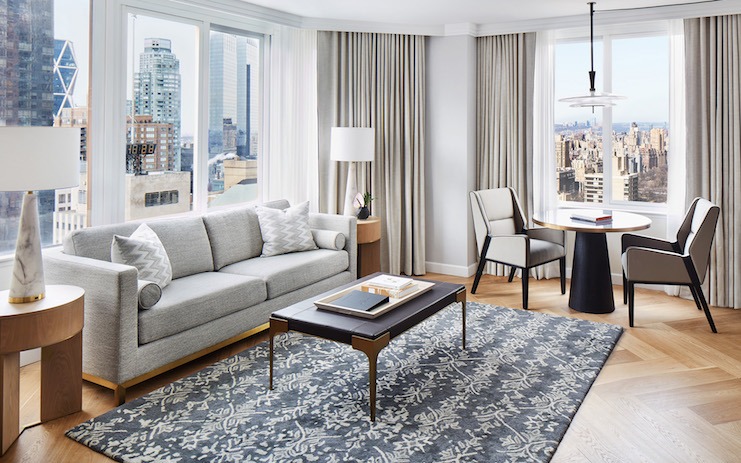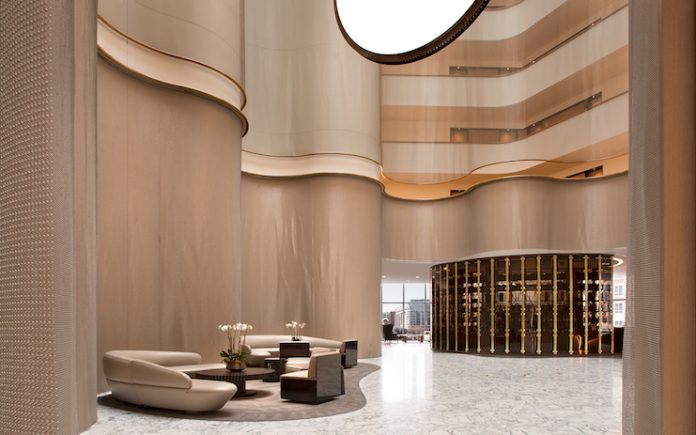MCLEAN, Va.—This week, Hilton President and CEO Chris Nassetta announced the company is ramping up its luxury development and is on track to open more luxury hotels in 2019 than in any previous year of its 100-year history. The company expects to open seven properties by year’s end—in addition to four openings earlier this year—across its luxury brands: Waldorf Astoria Hotels & Resorts, LXR Hotels & Resorts, and Conrad Hotels & Resorts.
Joining Hilton’s 65 existing luxury properties this year are the Waldorf Astoria Dubai International Financial Centre, Waldorf Astoria Los Cabos Pedregal, Waldorf Astoria Maldives Ithaafushi, LXR: The Biltmore, Mayfair in London, Zemi Beach House Resort & Spa in Anguilla (LXR), Conrad Hangzhou, Conrad Hangzhou Tonglu, Conrad New York Midtown, Conrad Shenyang, Conrad Tianjin, and Conrad Washington, D.C.
Following this year’s openings, Hilton’s luxury pipeline includes more than 30 properties, approximately 25 of which are expected to open through 2025.
“After more than a decade of honing Hilton’s distinct luxury offerings and investing in key markets around the globe, we are embarking upon a very exciting phase for the category,” said Martin Rinck, executive vice president and global head, luxury and lifestyle group, Hilton. “Over the next five years, starting with this year’s openings, we will start to see the positive impact of our efforts, and we are confident that our amazing portfolio of properties will reinvent luxury travel for Hilton—and for the entire industry.”
Luxury became a top priority for Hilton when Nassetta took over as president and CEO in 2007 and re-focused the company’s business strategy around organic growth. Hilton leadership mapped out a luxury growth strategy that centered on two priorities: refining the two core luxury brands at the time, Waldorf Astoria and Conrad, to resonate with specific customer needs; and bringing the brands to diversified markets. Last year, Hilton launched LXR, its third luxury brand, to fill a gap among independent luxury hotels.
“Hilton was among the first to predict that luxury travel was poised to take off across generations and markets in the years to come—and we wanted to be at the forefront of its reinvention,” said Ian Carter, president, global development, architecture, design and construction, Hilton. “Development in the luxury space requires time and resources to do it properly. Our thoughtful and targeted approach has enabled us to grow Hilton’s luxury presence globally—in many cases from the ground up—from new properties to spectacular conversions.”
As part of its organic growth strategy, Hilton’s luxury development team works with ownership groups to select markets and tailor the respective brand’s presence. Over the past decade, Hilton and its partners expanded the luxury category’s global presence from 15 to 29 countries and territories, and they are continuing to grow the portfolio with a pipeline of more than 30 signings that are diverse in regions and market-types.
Waldorf Astoria is growing to include more resort destinations and is building a presence in more key urban markets like London (expected to open in 2021), San Francisco (expected to open in 2022), and Miami (expected to open in 2024). The Conrad brand, which has been concentrated in the Asia Pacific region, is gaining traction in other parts of the world, including the United States, where it recently signed deals in Nashville (expected to open in 2021) and Orlando (expected to open in 2022) and opened a flagship property in Washington, D.C.

In addition, the Waldorf Astoria hotels in New York and Las Vegas, as well as the Conrad in Miami, are among Hilton luxury properties undergoing renovations to upgrade design and enhance the on-property experience.
Hilton has also made investments over the past decade in its commercial services for the luxury category, which have helped to attract new owners and improve performance of existing luxury properties.
The category has expanded its bench of talent across corporate and property functions, which has led to the development of resources and solutions that drive profits and efficiencies for owners. Hilton has doubled its luxury sales team with a focus on group accounts and transient sales, and created a data and analytics function of more than 150 employees to further personalize and tailor the guest experience.
“Our success truly comes down to our people,” Rinck said. “We continue to hire the best talent in the business who ensure Hilton luxury is competitive in the travel landscape today and tomorrow.”











